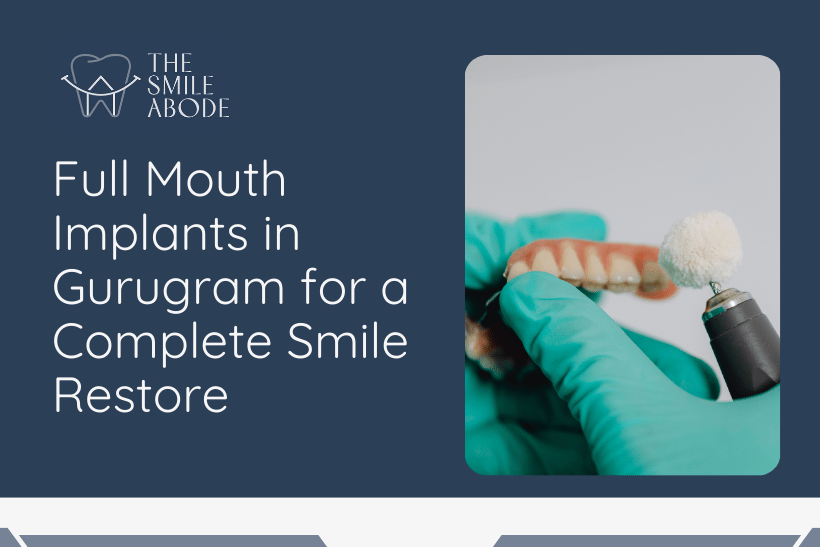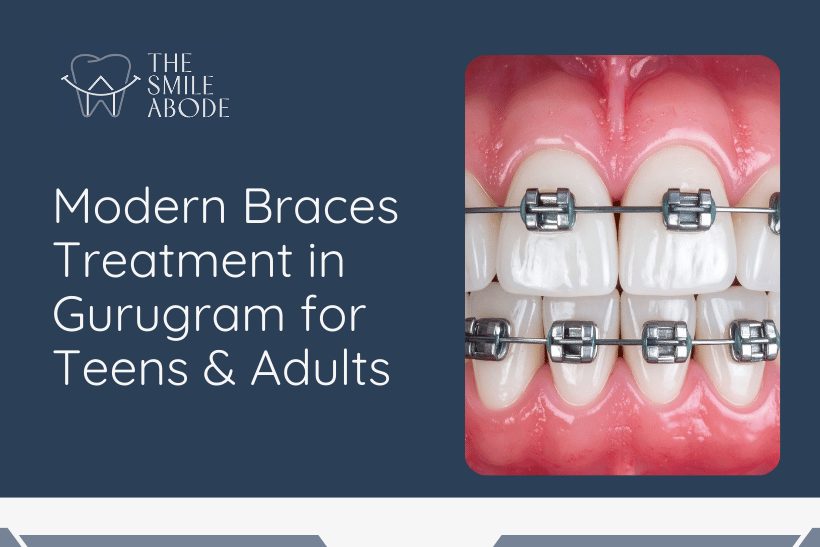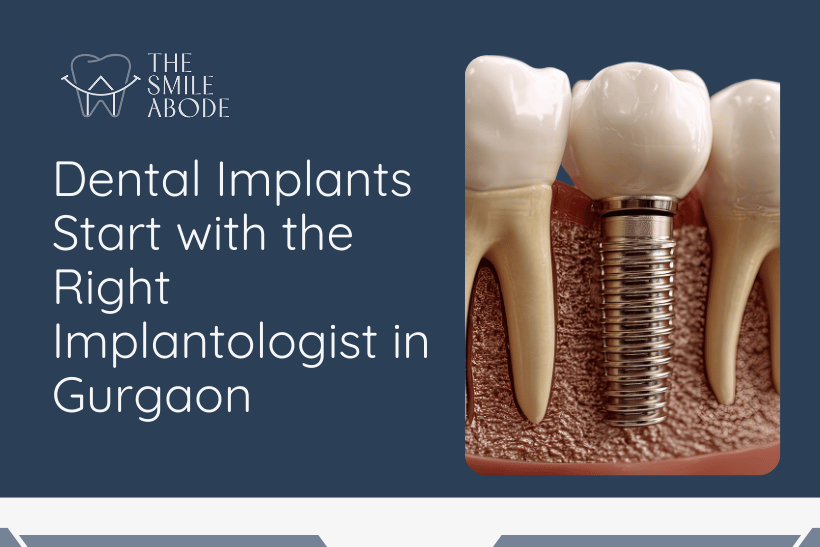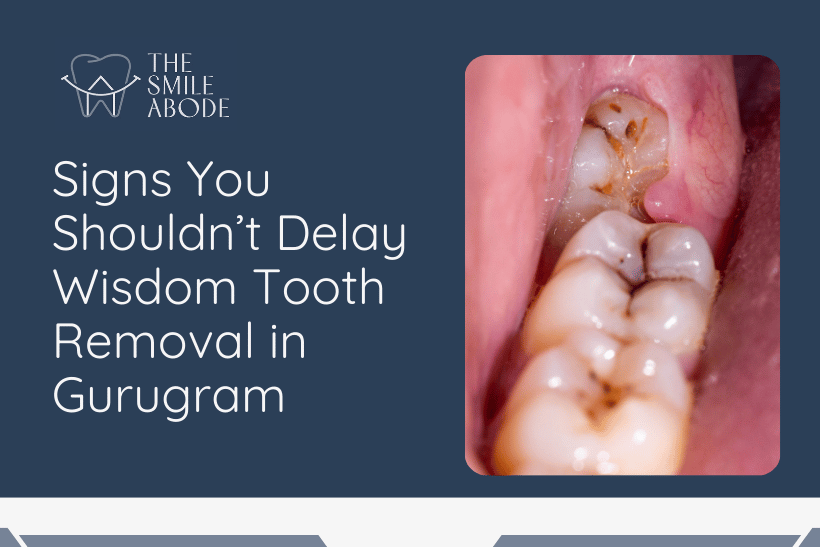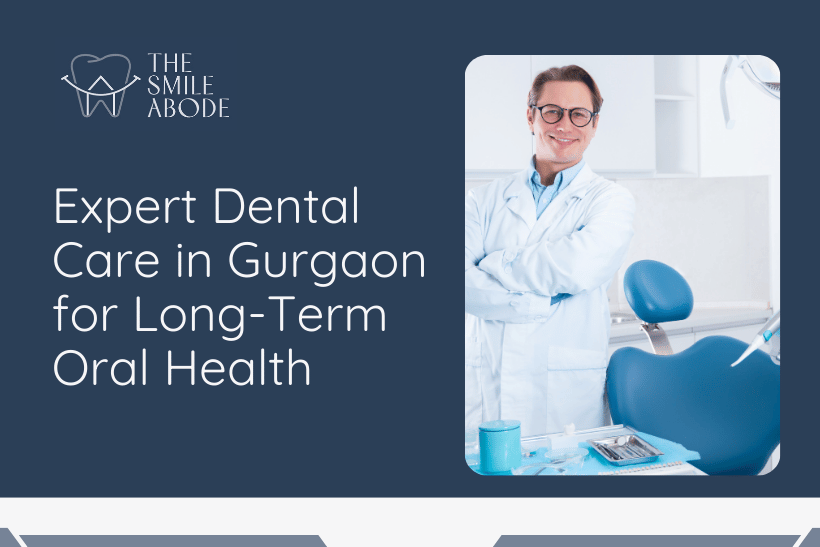Overview
Wisdom teeth, also known as third molars, are the last set of teeth to erupt in the mouth—typically between the ages of 17 and 25. While they served a purpose in the diets of our ancestors, modern jaw sizes often lack the space to accommodate these teeth comfortably. As a result, wisdom teeth commonly cause problems such as impaction, crowding, pain, and infection.
At TheSmileAbode, we offer advanced Wisdom Teeth Removal Treatment in Gurugram, performed by skilled oral surgeons in a safe and comfortable environment. Whether you’re experiencing pain, swelling, or your dentist has advised preventive removal, understanding the procedure and recovery process is key to making informed decisions about your dental health.
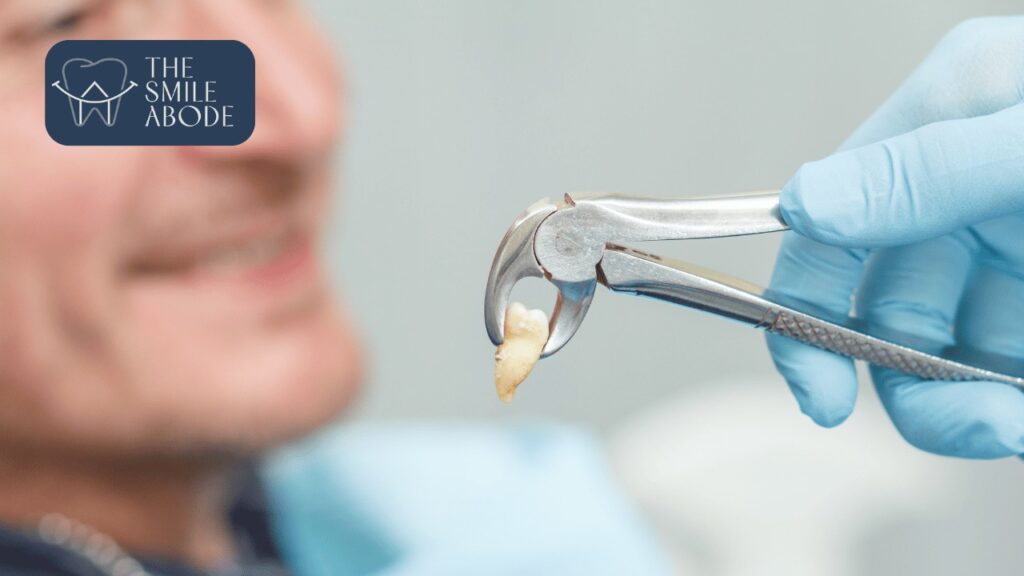
Why is Wisdom Teeth Removal Necessary?
Not all wisdom teeth require removal, but many do due to complications or risks they pose. Here are some common reasons:
1. Impaction
Wisdom teeth may become trapped in the jawbone or gums, unable to erupt fully. Impacted teeth can lead to infection, cysts, or damage to adjacent teeth.
2. Crowding
The eruption of wisdom teeth may shift the alignment of your other teeth, especially after orthodontic treatment like braces.
3. Infection or Gum Disease
Partially erupted wisdom teeth are prone to bacterial buildup, leading to infections or gum issues like pericoronitis.
4. Tooth Decay
Wisdom teeth are hard to clean due to their location at the back of the mouth. This increases the risk of cavities and decay.
5. Preventive Reasons
Some individuals opt for early removal before complications arise, especially when the wisdom teeth are not yet fully developed.
Who Needs Wisdom Teeth Removal?
You might need Wisdom Teeth Removal Treatment in Gurugram if you’re experiencing:
- Persistent pain or discomfort at the back of your mouth
- Red, swollen, or bleeding gums near your molars
- Jaw stiffness or difficulty opening your mouth
- Swelling or pressure around the lower or upper jaw
- Bad breath or unpleasant taste from the infected tooth
What Happens During the Wisdom Teeth Removal Procedure?
At TheSmileAbode, the process is carefully designed to ensure patient comfort and safety from start to finish. Here’s a step-by-step look at what to expect:
1. Consultation and Imaging
We begin with a detailed oral examination and digital X-rays or CBCT scans to assess the position of your wisdom teeth. This allows our oral surgeon to create a personalized extraction plan.
2. Anesthesia Options
Depending on the complexity of the case and patient preference, we offer:
- Local anesthesia for single-tooth, straightforward removals
- Conscious sedation or general anesthesia for multiple or impacted extractions
Our focus is on pain-free treatment with minimal discomfort.
3. Surgical Procedure
The type of removal depends on the tooth’s condition:
- Simple Extraction: If the tooth has fully erupted, it is loosened and pulled using dental instruments.
- Surgical Extraction: For impacted or partially erupted teeth, a small incision is made in the gum, and the tooth may be sectioned into smaller pieces before removal.
The entire process typically takes 30–60 minutes.
4. Stitches and Wound Care
If required, stitches are placed to close the incision. These may dissolve on their own or be removed in a follow-up visit.
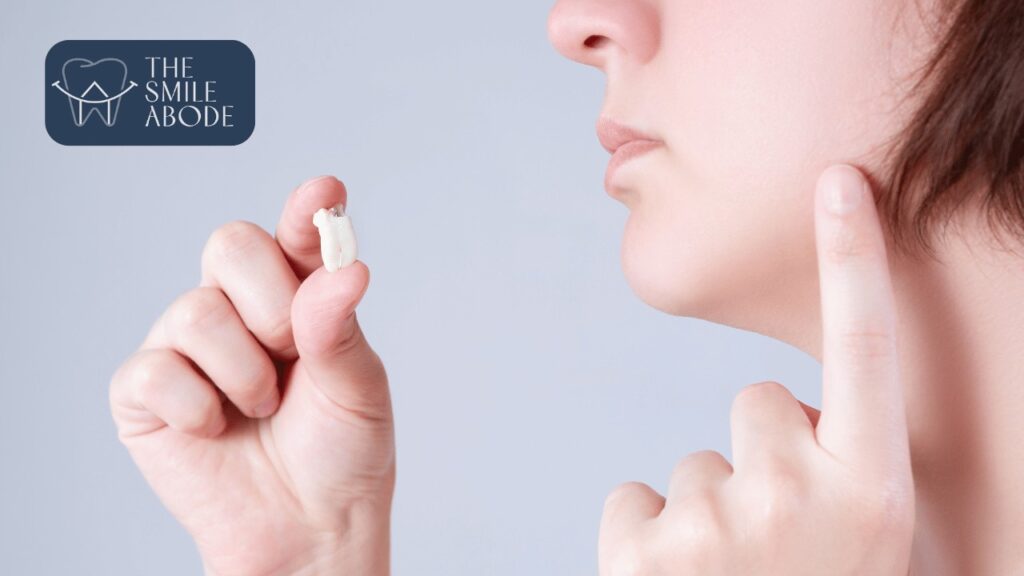
What to Expect After the Procedure: Recovery & Care
Recovery from Wisdom Teeth Removal Treatment in Gurugram varies from person to person, but most patients return to normal activities within a few days. Here’s how to ensure a smooth healing process:
1. First 24 Hours
- Use gauze to control bleeding
- Apply ice packs on the face to reduce swelling
- Rest and avoid any strenuous activity
2. Pain Management
Mild to moderate pain or discomfort is common. Over-the-counter pain relievers or prescribed medications are effective in managing symptoms.
3. Dietary Precautions
- Stick to soft foods like yogurt, soups, mashed potatoes, smoothies
- Avoid spicy, crunchy, or hot foods for a few days
- Don’t use straws—sucking may dislodge the blood clot
4. Oral Hygiene
- Avoid brushing the extraction site for 24 hours
- Rinse with salt water gently after 24 hours to keep the area clean
- Avoid smoking or alcohol for a few days as they can hinder healing
5. Follow-up
Our team schedules follow-up visits to ensure proper healing and to address any complications like dry socket or infection, if they occur.
How Long is the Recovery Period?
Most patients recover from wisdom teeth removal in 3 to 7 days. Some swelling and jaw stiffness may last a bit longer. The healing process is faster when instructions are followed properly.
Complete tissue healing within the gums may take 2–3 weeks, while bone healing can continue for a few months. At TheSmileAbode, we provide continuous support throughout your healing journey.
Why Choose TheSmileAbode for Wisdom Teeth Removal Treatment in Gurugram?
When you choose TheSmileAbode, you’re choosing precision, comfort, and compassionate care.
✅ Expert Oral Surgeons
Our board-certified oral and maxillofacial surgeons have years of experience performing both simple and complex wisdom teeth extractions.
✅ Modern Technology
From digital X-rays to advanced imaging systems, we ensure accurate diagnostics and safer procedures.
✅ Customized Anesthesia Options
Your comfort is our priority. We offer various sedation options tailored to your anxiety levels and medical history.
✅ Post-Operative Support
We don’t just perform the procedure—we support you during recovery with clear instructions and prompt aftercare.
✅ Transparent Pricing
Our consultation includes a detailed cost estimate, with no hidden charges. We also offer flexible payment options.
Cost of Wisdom Teeth Removal in Gurugram
The cost of Wisdom Teeth Removal Treatment in Gurugram depends on factors such as:
- Whether the tooth is erupted or impacted
- Number of teeth being removed
- Type of anesthesia used
- Complexity of the procedure

Conclusion
Wisdom teeth, when problematic, can significantly affect your oral health and comfort. Timely removal is not only a preventive measure but also a step toward preserving the alignment and hygiene of your mouth. At TheSmileAbode, we are committed to delivering expert Wisdom Teeth Removal Treatment in Gurugram that is safe, effective, and stress-free.
Best Wisdom Teeth Removal in Gurugram Sector 46
Best Wisdom Teeth Removal in Gurugram Sector 47
Best Wisdom Teeth Removal in Gurugram Sector 48
Best Wisdom Teeth Removal in Gurugram Sector 50
Best Wisdom Teeth Removal in Gurugram Sector 51
Best Wisdom Teeth Removal in Gurugram Sector 52
FAQs
1. Is wisdom teeth removal painful?
Ans. The procedure is performed under anesthesia, so you won’t feel pain during the extraction. Mild discomfort after the surgery is normal and can be managed with prescribed medications.
2. How many days of rest are required after wisdom tooth removal?
Ans. Most patients require 2–3 days of rest. Light activity can be resumed after that, but avoid strenuous exercise for about a week.
3. What is the ideal age for wisdom tooth extraction?
Ans. The best time is usually between the ages of 17 and 25 when the roots are not fully formed. However, extractions can be done safely at any age if necessary.
4. Can I go to work the next day after extraction?
Ans. It depends on the complexity of the procedure and your pain tolerance. Most patients prefer taking at least a day off to rest.
5. Are there any complications of wisdom tooth removal?
Ans. Complications are rare when performed by experienced surgeons. However, risks include dry socket, infection, or nerve sensitivity. These can be minimized with proper aftercare and follow-ups.

